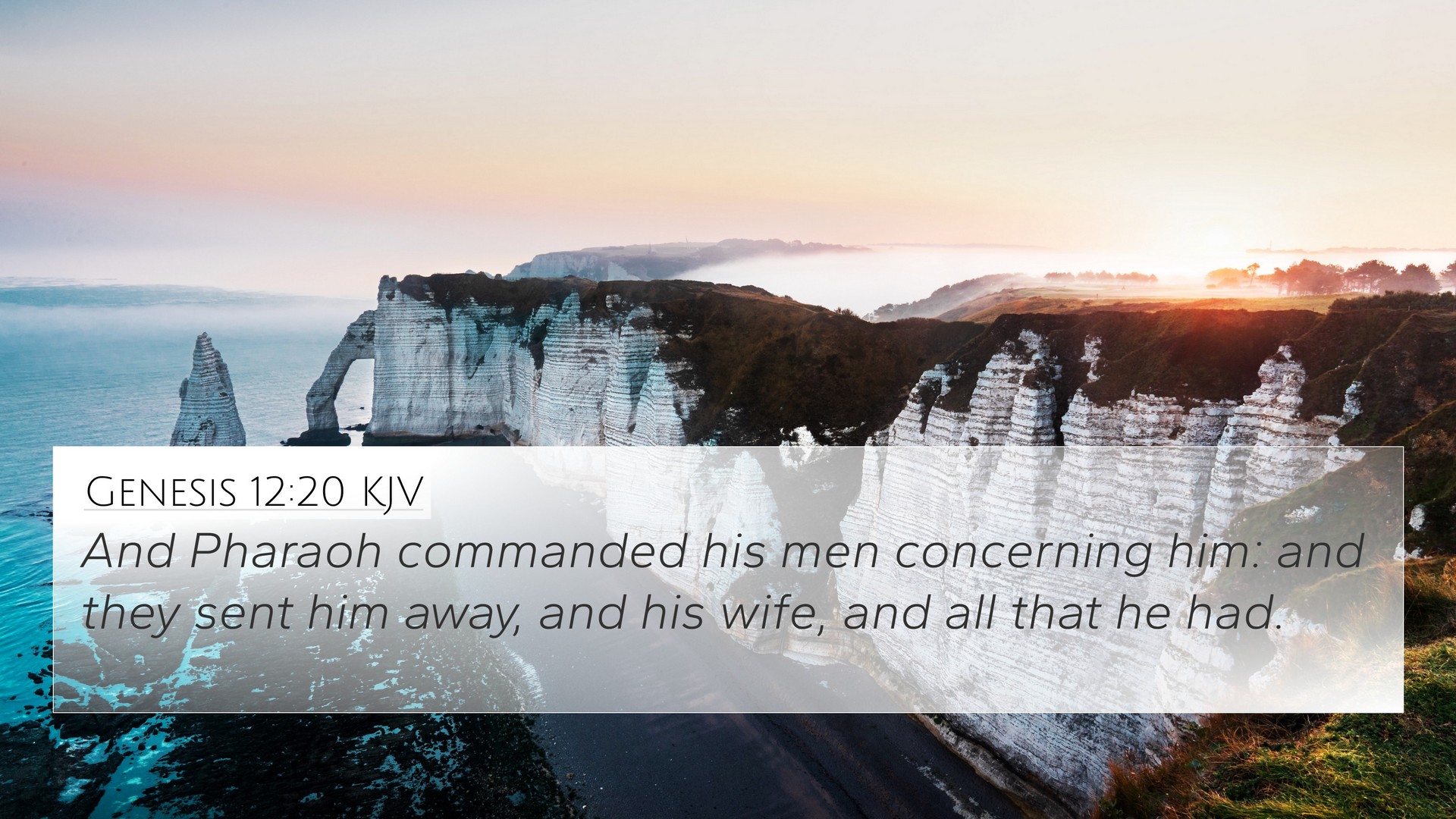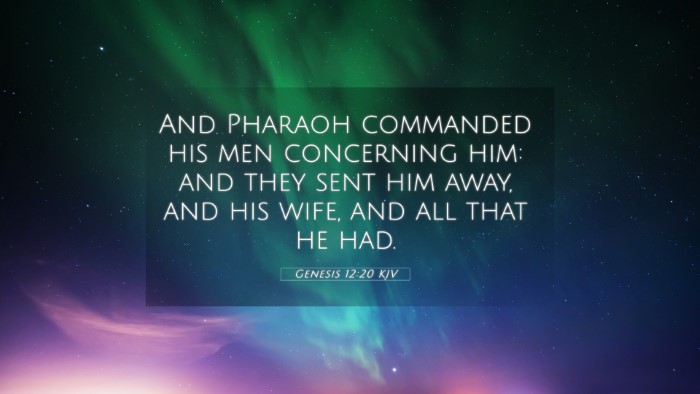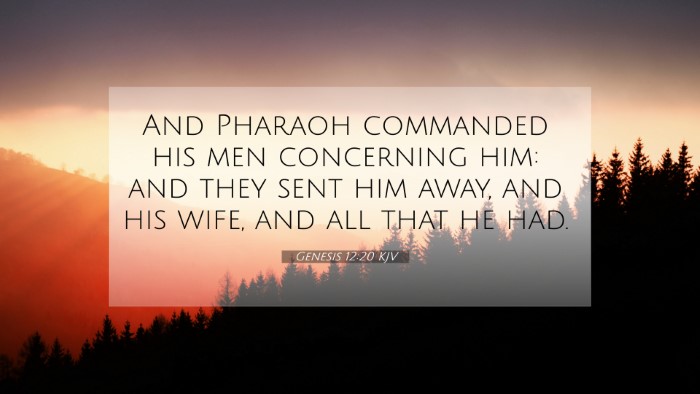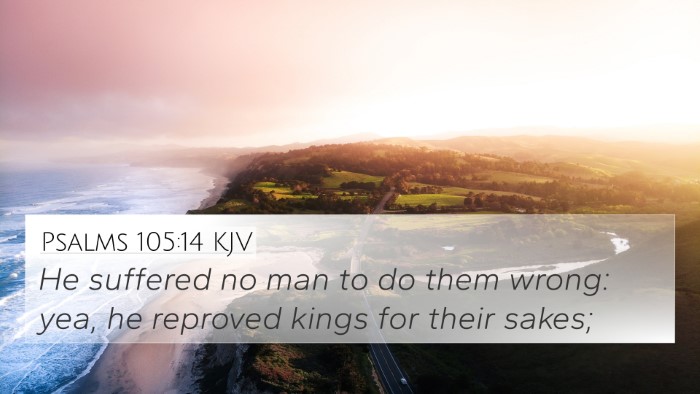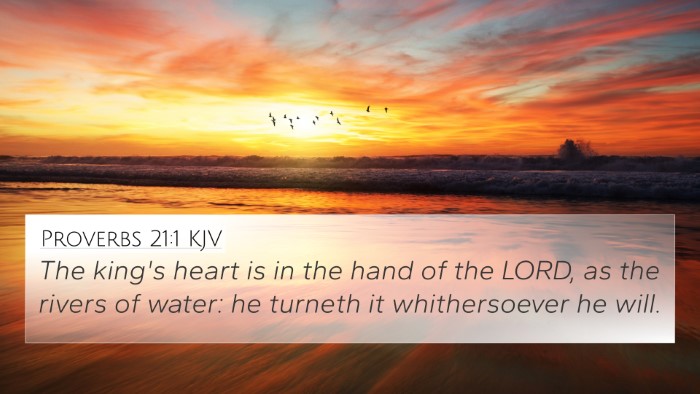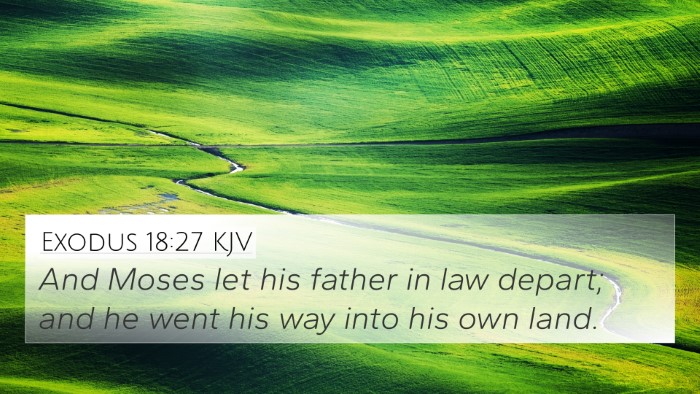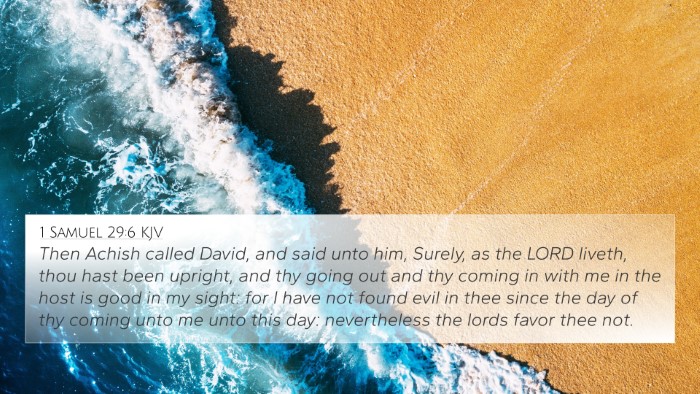Understanding Genesis 12:20
Genesis 12:20 reads: "And Pharaoh gave men charge concerning him: and they sent him away, and his wife, and all that he had." This verse concludes a significant moment in Abraham's journey, revealing the tension between faith and fear in the patriarchal narrative.
Contextual Overview
The context of this verse is set within the larger narrative of God's calling of Abraham and his subsequent journey into Egypt due to a famine. Abraham's fear regarding Sarai's beauty leads him to deceive Pharaoh by claiming that she is his sister rather than his wife.
Insights from Public Domain Commentaries
Matthew Henry's Commentary
Matthew Henry emphasizes the theme of divine providence, noting that despite Abraham's deception, God’s intervention protects Sarai from being taken into Pharaoh's harem. Henry highlights how God's integrity triumphs over human failings, assuring readers that God’s covenantal promises remain steadfast, regardless of human shortcomings.
Albert Barnes' Notes
Albert Barnes provides an analytical perspective, explaining how Pharaoh's actions reflect a divine judgment against Abraham for his lack of faith. Barnes underlines that the king, upon discovering the truth, not only releases them but also commands them to depart with all their possessions. This act serves as a testament to God's protection over Abraham and reflects on the concept of retribution and reward according to the character of God.
Adam Clarke's Commentary
Adam Clarke adds depth by discussing the cultural implications of the narrative. He elucidates that Pharaonic action showcases the political dynamics of ancient Egypt, while simultaneously spotlighting Abraham's moral failure. Clarke argues that even amid deceit, the narrative underscores God’s grace and providential care for Abraham and Sarai as they are sent away unscathed and prosperous.
Thematic Connections and Cross-References
This verse intersects with numerous thematic elements found throughout Scripture, linking stories of faith, deception, and divine mercy. Below are some crucial Bible verse cross-references that illuminate this narrative:
- Genesis 20:2-3 - Similar themes of deception where Abraham presents Sarah as his sister to Abimelech.
- Exodus 1:8-10 - The oppression of the Israelites in Egypt serves as a reference point for the power dynamics in Egypt.
- Genesis 26:7-9 - Isaac mimics Abraham's actions, reflecting familial patterns of deceit under pressure.
- Psalm 105:14-15 - Almighty protection of God’s chosen people from harm, echoing Abraham's experience in Egypt.
- Proverbs 16:7 - A reminder that when a man's ways please the Lord, he makes even his enemies to be at peace with him, reflecting God’s favor.
- Romans 4:3 - Illustrates Abraham's faith and righteousness, setting a theological perspective on his actions.
- Hebrews 11:8-10 - Commends Abraham’s faith in God’s promise of a homeland, despite his failures in Egypt.
Application and Reflection
The story captured in Genesis 12:20 serves not just as a historical account, but also as a reflection on human nature. It brings forth critical questions about faith and fear, trust in God’s promises, and the nature of divine providence. The decisions Abraham made, although flawed, remind believers that God’s grace can transcend human error.
Conclusion
In summary, Genesis 12:20 represents a pivotal moment in Abraham's journey and provides vital themes for Bible verse analysis. The chapter juxtaposes faith against fear while showcasing God’s unwavering providence. The cross-references strengthen the understanding of these themes throughout Scripture, encouraging believers to engage with the text through careful cross-referencing Bible study.
Additional Study Resources
For further exploration of the connections between Biblical texts, consider utilizing tools for Bible cross-referencing, such as concordances and reference guides. These resources can enhance your study and understanding of how ancient narratives engage with contemporary faith journeys.
